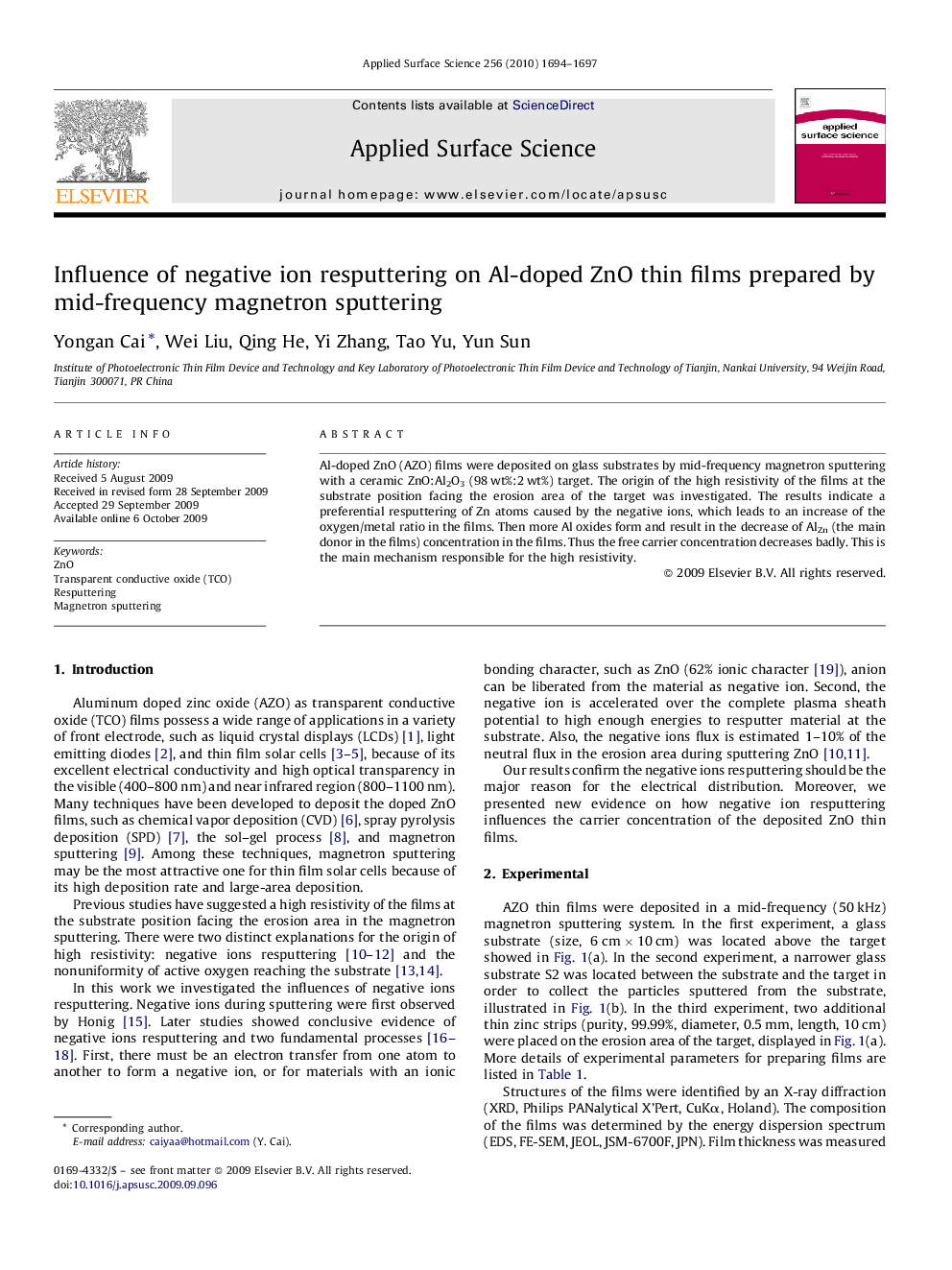| Article ID | Journal | Published Year | Pages | File Type |
|---|---|---|---|---|
| 5363712 | Applied Surface Science | 2010 | 4 Pages |
Abstract
Al-doped ZnO (AZO) films were deposited on glass substrates by mid-frequency magnetron sputtering with a ceramic ZnO:Al2O3 (98Â wt%:2Â wt%) target. The origin of the high resistivity of the films at the substrate position facing the erosion area of the target was investigated. The results indicate a preferential resputtering of Zn atoms caused by the negative ions, which leads to an increase of the oxygen/metal ratio in the films. Then more Al oxides form and result in the decrease of AlZn (the main donor in the films) concentration in the films. Thus the free carrier concentration decreases badly. This is the main mechanism responsible for the high resistivity.
Related Topics
Physical Sciences and Engineering
Chemistry
Physical and Theoretical Chemistry
Authors
Yongan Cai, Wei Liu, Qing He, Yi Zhang, Tao Yu, Yun Sun,
